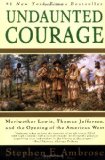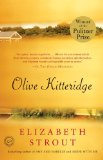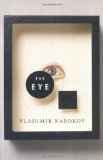Book Review: "The 19th Wife" by David Ebershoff
June 2, 2008

My latest LibraryThing Early Reviewer book. It will be released in a couple of months.
–

David Ebershoff’s third novel, “The 19th Wife” is one part historical fiction, one part modern whodunnit and one part connective tissue. Its scope is monumental, addressing the legacy of “plural marriage” within the Church of Jesus Christ of Latter-Day Saints from its founding to the present day. Plus murder, a Wikipedia article, thesis abstracts, newspaper interviews, and an eerie midnight hour confession from the man himself, Brigham Young (all fictional, of course).
The narrative flings around between centuries and storylines as Ebershoff tells us a tale of Ann Eliza, Brigham Young’s plural-wife-turned-apostate, paralleled by a modern murder within a Fundamentalist Mormon sect. Though Ebershoff leaps around, he does so with facility; it is not challenging to keep track of the threads.
This is a compelling story. Though the book is a vehicle for an ominous, scathing message about the emotional and real damages of polygamy (won’t someone think of the children?!), the plotmaking taken alone is enough to make it a worthwhile read. Its page count is a bit daunting, but they whisk along breezily.
While most of the language is conversational and active–think murder mystery, not pastoral– Ebershoff does show a quiet respect for the desert environment of southern Utah. He paints a hot, isolated image of Mesadale, the town-slash-compound home of his modern-day polygamist Fundamentalists.
“The sun was going down before I reached Mesadale, a livid ball plunging from the sky. The desert was burning, everything shot through with reds. In the last twenty nmiles I didn’t see another car. That’s what the desert’s about: solitude. It’s a test. A test to see if you can stand yourself.”
Where Ebershhoff struggles is in tone. While his characters take mostly believable actions, the way they express themselves doesn’t ring true. His modern protagonist, Jordan, and the book’s core character, Ann Eliza, suffer in this regard. Jordan’s conversations are flat and forcefully aloof. I’m not convinced that Ann Eliza sounds like she is writing in the 1870s. Perhaps he is trying to be too many narrators at once. Perhaps some of the threads would work better in the third person.
The research required for this novel was a serious undertaking. The net of its content is flung wide: everything from the founding principles of Mormonism to the recent grapplings with the nature of homosexuality comes under Ebershoff’s lens. In the end, it’s hard to be sure if would be blasphemy to enjoy this story simply as a story, a page-turner vacation read with a history lesson. Or would that be missing the point?
One Comment
Recently Reviewed
Get the Books
Read my Reviews
Related Posts
- Books: David Ebershoff on LibraryThing Talking about "The 19th Wife"
August 20, 2008 - Book Review: “The Lonely Polygamist” by Brady Udall
May 1, 2010 - Book Review: "In the Woods" by Tana French
April 21, 2008 - Book Review: "Sweetsmoke" by David Fuller
August 15, 2008 - Book Review: “The Many Deaths of the Firefly Brothers” by Thomas Mullen
January 27, 2010






[...] my original review of The 19th Wife. « Previously: Book Review: “Wonder Boys” by Michael [...]